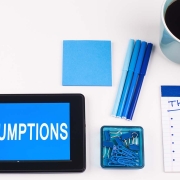Your Kids and Divorce: Mediating a Child-First Divorce
What do kids and divorce negotiations have to do with one another?
A lot! (for parents).
Thinking about your kids could be the best decision you’ll make in your divorce negotiation.
Your Kids’ Shoes
I recently wrapped up a mediation that was a model child-centered divorce.
The parents weren’t buddies. They didn’t spend a lot of time together. They disagreed a lot during mediation.
In fact, they didn’t particularly like each other.
But they love their kids, and despite the obvious personal tension between them they embraced their redefined relationship: co-parents for life.
And they realized that to make a great parenting plan they needed some perspective.
Kids and Divorce Mediation
What kind of perspective?
Your kids!
Some would ask what a child’s perspective has to do with divorce negotiations, so let me explain.
The degree to which your parenting plan meets your children’s needs can profoundly affect how well they adapt to divorce.
My divorce mediation clients worked hard to put themselves in their children’s shoes and consider their perspective when crafting the parenting schedule, holiday division, and the many other parts of their parenting plan.
And the way in which they did this was usually subtle. They’d ask questions like:
She has all these activities…what kind of drop-off arrangement do we think would be least stressful for her?
You know, she’s really worried about the dog…would you ever consider having her bring the dog with her when she’s at your place?
He’s really anxious and worried about upsetting either of us…can we figure out how to explain the plan to him together? Maybe we can have a family meeting?
You know his friends are his life…we need to figure out a way to make sure we’re on the same page about play dates and birthday parties…
I think alternating Christmas, which is what I’d personally like to do, would be devastating for them…how can we make this work so it’s still special for them and not impossible for us?
Your Kids and Divorce…
Walking in your kids’ shoes for a moment can take the focus away from your spousal conflict and place it on what binds you most meaningfully: your children.
And will lead to a better child-centered parenting plan.










